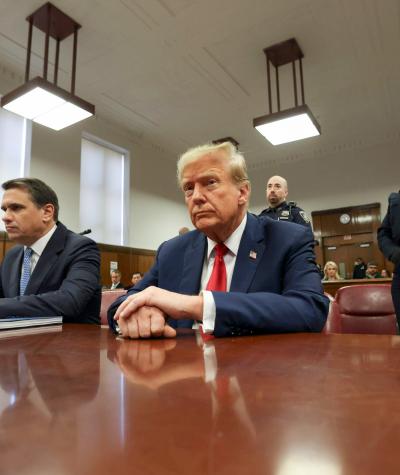When federal candidates and committees spend money to influence elections, they have to disclose that spending in publicly filed reports, which creates transparency for voters trying to decide who to vote for and helps ensure accountability if donors’ money is misused.
Federal campaign finance laws require candidates and committees to publicly disclose not only how much they’re spending overall, but who’s getting paid to provide campaign services, and how much they’re getting paid for those services.
Every committee must itemize any expenditure or other disbursement that totals more than $200 per year (or per two-year election cycle, a candidate’s campaign), and they must identify the recipient along with the date, amount, and purpose of the disbursement.
But former President Donald Trump’s 2024 presidential campaign, his leadership PAC Save America, and three other committees directly linked to Trump appear to have violated these federal reporting requirements.
These committees’ disclosure reports show that since December 2022, they have made 108 disbursements totaling more than $7.2 million to “Red Curve Solutions” (Red Curve), virtually all of which are described as “reimbursement for legal” costs or expenses.
Red Curve Solutions is a limited liability company (LLC) run by Bradley Crate, who is the treasurer for all five of the Trump-affiliated committees, as well as for over 200 other federal campaigns and committees.
Red Curve, which Crate formed in 2009 as “Crate Consulting Group, LLC,” is a compliance and accounting firm, and does not appear to offer any legal services.
On their face, the Trump committees’ reports state that Red Curve isn’t being paid to provide legal services, it’s being reimbursed for legal services — suggesting that Red Curve paid or advanced money to the lawyers that actually provided those services.
The result of this setup is that the committees aren’t disclosing the lawyers and law firms providing legal services — or how much they’re being paid — which is what the law requires.
Concealing this information from the public is hugely problematic, as it denies voters their basic right to know — as articulated by the Supreme Court — “where political campaign money comes from and how it is spent,” and prevents them from meaningfully evaluating candidates to “make informed decisions.”
The $7.2 million that Trump’s committees have reported reimbursing to Red Curve for “legal costs” and “legal expenses” appears to exceed the amount they have reported paying to any lawyer or law firm.
Because of this payment-and-reimbursement scheme, voters have no idea who’s been paid over $7.2 million by Trump’s committees. And the reporting failure is potentially still ongoing — making it imperative that this situation be resolved quickly and transparently.
That’s why Campaign Legal Center (CLC) filed a complaint with the Federal Election Commission (FEC) alleging that Trump’s committees have violated their reporting obligations under the Federal Election Campaign Act (FECA).
CLC’s complaint also alleges that Red Curve appears to have made illegal contributions to the Trump committees. If Red Curve has paid or advanced funds for legal services and been reimbursed by the Trump committees, Red Curve effectively made contributions to those committees — which is not legal.
Regardless of whether Red Curve is a corporation or an unincorporated entity (that information isn’t publicly available) its contributions would appear to violate federal campaign finance laws: either FECA’s prohibition on corporate contributions or FECA’s contribution limits. And Trump’s committees also appear to have violated the law by knowingly accepting these unlawful contributions.
For over 16 months and counting, Trump’s committees have effectively concealed from the public how they’re spending millions of dollars on legal services.
It’s imperative that the FEC, which is responsible for enforcing the federal campaign finance laws that uphold transparency, swiftly investigate and enforce the law.

